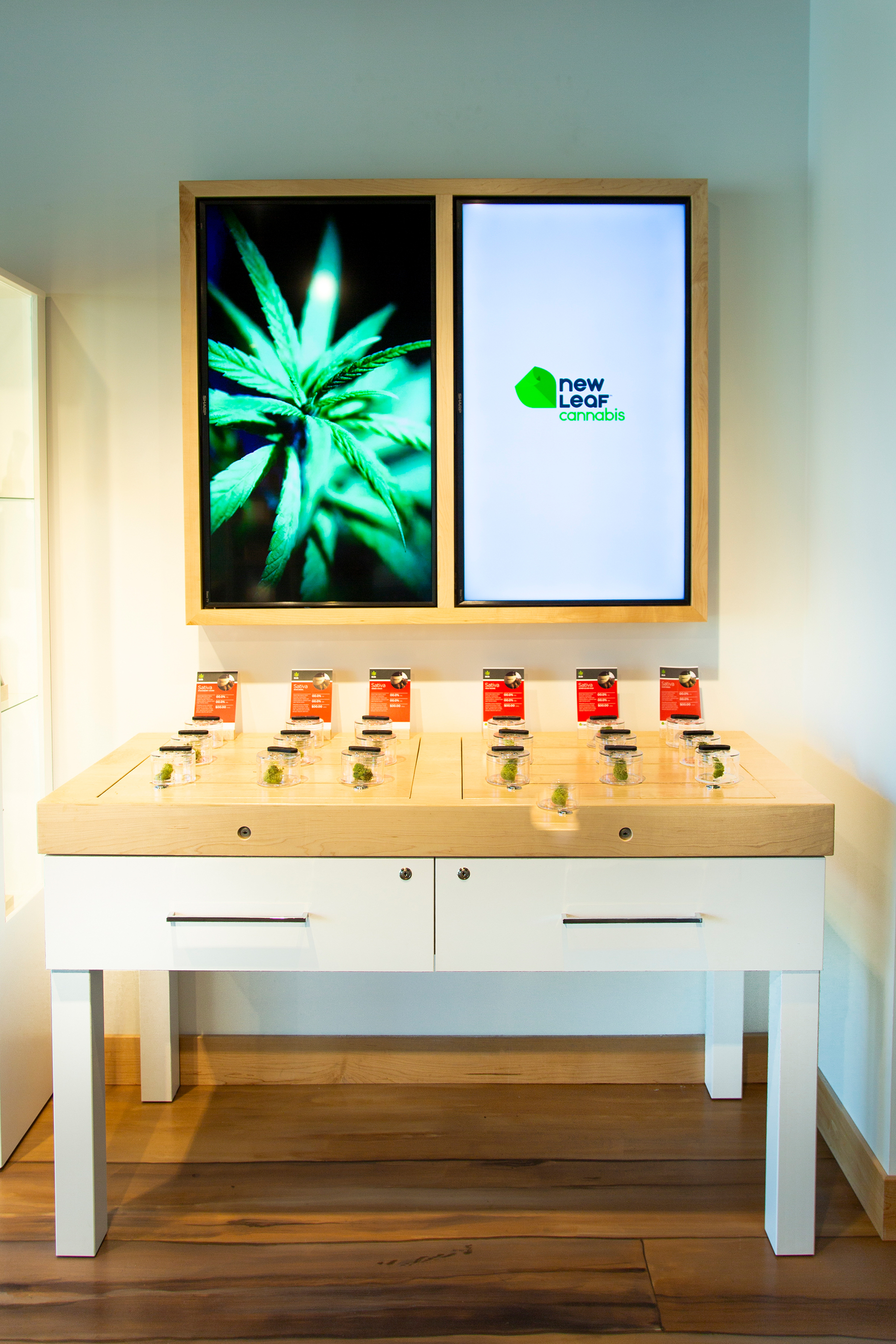The cannabis business is smoking in Canada. Case in point: Constellation Brands, producer of Corona, Modelo and other beers as well as several brands of wines and spirits, invested some $4 billion in Ontario-based pot producer Canopy Growth Corp. in August. Constellation Brands did this ahead of the anticipated legalization of recreational sales of marijuana in Canada on Oct. 17.
Edmonton-based Aurora Cannabis Inc. is, like Canopy Growth, an established marijuana producer and public company and has similarly been angling for a share of the retail market. Aurora made a strategic move of its own in February, buying a stake in Edmonton-based Liquor Stores N.A., an operator of some 200 retail outlets across Canada and Alaska. Then in May, Aurora boosted that stake to about 25 percent. The resulting entity has since been renamed Alcanna Inc., and its goal is to open cannabis stores across Canada under the Aurora name. (Liquor stores are not permitted to sell cannabis, so the pot outlets have to remain separate.)
The national government is leaving actual implementation of these marijuana sales to the provinces, thus allowing for further regulation by the local municipalities. As a result, different strategies have been put into effect, observes Susan Thompson, a research manager in the Calgary office of Avison Young. These range from province-controlled sales in Québec, to mixed government-private sales in numerous provinces, to a full commitment to private-sector sales in Alberta and elsewhere.
“Alberta is the gold standard for the private market and has been the focus of much of the investment and licensing dollars put into play in this industry,” said Dan Rowland, a Denver-based consultant who has been working with Calgary-based 420 Advisory Management, part of the 420 Premium Market umbrella, which plans to be a major player in these sales.

Calgary-based NewLeaf Cannabis, formed early last year, intends to have 25 stores operating in Alberta
Neighboring Saskatchewan is, like Alberta, similarly committed to the private sector, but the former is less populated, and fewer than 60 retail permits were allotted there. To the east, Manitoba initially gave out just four permits, then realized that was insufficient, so it has reopened the process. British Columbia will offer a mix of private- and government-run stores. Eventually, all eyes will turn to the most populated Canadian province: Ontario — which had originally decided for province-run stores, but then, with a new government in charge, opted to include private-sector retailers as well.
Private-sector stores will not be introduced in Ontario until next April, according to Eric Berard, a Toronto-based senior associate with Avison Young and an adviser to Calgary’s High Tide Ventures Inc., which plans to expand into Ontario, operating as Canna Cabana. “Based on Ontario’s population, we could see 500 to 600 licenses given out in the first tranche,” said Berard. “Canna Cabana fully plans to hit the maximum allotment if there is a limit, similar to the 15 percent cap achieved in Alberta.”
“In two to three years, landlords will treat the concept the same way as liquor stores, which have become anchors in many shopping centers”
Meanwhile, the major action has been in Alberta, home to two of Canada’s largest cities — Calgary and Edmonton — and indeed, for a while the province did look like a real estate version of the Yukon’s Klondike Gold Rush of the late 1890s.
“There definitely was a land rush,” said Hani Abdelkader, a Calgary-based vice president of retail services with Avison Young. “There was a point where our phones would not stop ringing and a majority of the calls were from cannabis groups. It has since cooled off as groups have found out [whether] they have gotten licenses.”
The 420 Premium Market game plan is to pursue the 15 percent maximum market share Alberta allows. “We have amassed what we see as a prominent number of applications for stores,” said Ryan Kaye, 420 Premium Market’s vice president of operations. “There was a lot of strategy and effort put into the application process by our team as far back as a year ago, since the market is saturated and certain areas are highly desirable for multiple organizations.”

The typical NewLeaf format measures about 1,500 square feet
Site restrictions have been put in place by the provinces and cities, according to Thompson. Among the restrictions are that there must be at least 30 meters (about 100 feet) between adjacent cannabis stores; that the stores must be located at least 100 meters away from schools; and that none are to share a common boundary with any liquor store. In Edmonton, cannabis stores must be at least 100 meters from a park, though there is no similar restriction in Calgary. Otherwise, a cannabis store may be located almost anywhere.
Some companies have pursued applications in shopping malls — such as CF Chinook Centre, one of the busiest in Calgary — but 420 Premium Markets chose not to do that, says Kaye. “Being located in the mall could go against some of the outlined municipal and federal restrictions, which is not a situation we would like to put our organization in,” he said. Instead, the company’s units tend to locate primarily in outdoor strip malls and boutique shopping areas.
Calgary-based NewLeaf Cannabis, formed early last year, intends to have 25 stores operating in Alberta. That province wants to prevent any mere handful of major players from dominating the market, so no company is permitted to hold more than 15 percent of the total retail licenses there. “You would have to get to 37 stores to get to 15 percent,” said Angus Taylor, NewLeaf’s chief administrative officer. “There are few enterprises shooting for that amount. But it’s tricky, because each municipality has its own rules about location. Our intent is to have a minimum of 15 stores ready by October 17, and then 25 by the end of the year. We will be in eight locations throughout the province.”
NewLeaf did try for a presence in Saskatchewan as well, Taylor says, but that province has a lottery system for licensees, and NewLeaf failed to luck out. The company is considering locations in Ontario and British Columbia, the latter being a place that wishes to keep the market competitive, so no single operator is permitted to operate more than eight stores. The typical NewLeaf format measures about 1,500 square feet, though 420 Premium and some others say they plan to go larger — in the 2,500-to-3,000-square-foot range.
At press time it was anyone’s guess what the numbers of these stores would be. Alberta was projecting that it would end up with about 250 stores, while Taylor speculated that the number would actually come to less than half of that by the Oct. 17 date. Kaye was a tad more optimistic, with a suggested number closer to 200.
As for where the Canadian cannabis market is likely to be in two years’ time,“there is no question that when larger organizations move into the [Canadian] space, they will gobble up market share, up to provincial limits,” said Rowland. “However, if we look at Colorado as an example, that will take time to happen."
Explore new business opportunities at the Canadian Convention.
Register hereWhat cannabis operators anticipate, observed Abdelkader, “is that in two to three years, landlords will treat the concept the same way as liquor stores, which have become anchors in many shopping centers.”
Mall landlord RioCan Real Estate Investment Trust, for one, needs no persuading. Canada’s legalization of recreational marijuana will spur a retail real estate gold rush, boosting demand and rent, predicts Edward Sonshine, the firm’s CEO. “There’s no question that whatever rules finally come down, they’re not going to want four cannabis stores at one corner,” Sonshine said in an earnings call. “There’s going to be some control over that.” The so-called gold rush will come, he noted, as retailers start “looking to stake a claim at the best locations, many of which we own.”
By Steve Bergsman
Contributor, Shopping Centers Today


